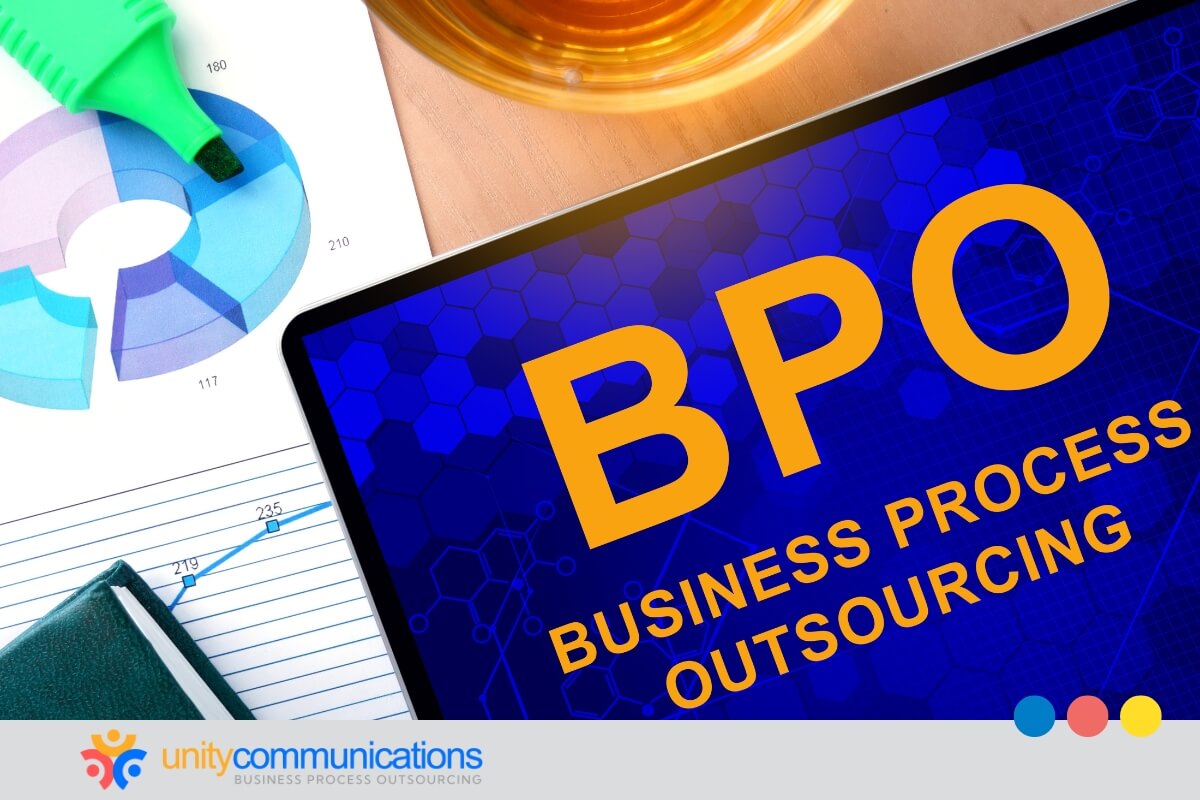IN THIS ARTICLE
Table of Contents
Organizations constantly seek avenues to drive efficiency, enhance productivity, and maximize value creation. Business process outsourcing (BPO) has become their preferred strategy for achieving operational excellence and strategic agility.
Besides being a cost-saving measure, BPO streamlines processes, fuels innovation, and propels businesses forward. This article explores value creation in business process outsourcing and how it contributes to attaining strategic business goals.
Value creation using business process outsourcing

What is BPO’s role in driving value? Value creation, in the context of business process outsourcing, refers to the generation of benefits or advantages caused by outsourcing specific business processes to a third-party company.
Cost savings used to be one of the primary drivers of BPO adoption. Outsourcing non-core functions such as customer service, data entry, or payroll processing to locations with lower labor costs can significantly reduce operational costs. This cost efficiency translates into direct savings.
The shift from cost-efficiency to value-driven outsourcing reflects the industry’s broader evolution. Companies are no longer solely focused on reducing operational expenses. They also seek strategic benefits and competitive advantages from their outsourcing partnerships.
Instead of viewing outsourcing as a cost-cutting measure, companies now focus on the strategy for long-term value creation. They identify areas where outsourcing can drive innovation, improve quality, accelerate time to market, or enhance customer experience.
Here’s how value creation manifests in business process outsourcing.
Facilitating business innovation and agility
BPO can facilitate business innovation and agility in several ways, contributing to the value creation process for client companies. Service providers possess specialized skills and technologies. By outsourcing to these experts, businesses can tap into a wealth of experience and innovative approaches that might not be available in-house.
BPO providers can also quickly deploy additional resources or expertise as needed to support new projects or initiatives. This rapid scalability enables companies to pursue innovation opportunities without being constrained by internal resource limitations or hiring delays.
For example, a company launching a new product or service or entering a new market might rely on a BPO partner to handle customer support, back-office operations, or supply chain management. In doing so, internal teams can focus on innovation and strategic planning.
Fostering strategic partnerships and collaboration
Effective BPO partnerships are built on shared goals between the client and the provider. By aligning interests and priorities, parties can work together toward common outcomes, such as improving operational efficiency or driving revenue growth. This shared vision fosters collaboration and encourages both parties to work toward mutually beneficial goals.
Business process outsourcing agreements encourage collaborative problem-solving. Client companies and service providers identify challenges, explore opportunities, and develop creative solutions together. They leverage their combined expertise, resources, and perspectives to effectively address complex problems.
Finally, BPO partnerships help mitigate risks by distributing responsibilities and sharing accountability. Rather than bearing all the risks internally, client companies can leverage the BPO partners to manage specific risks more effectively.
Similarly, BPO providers assume responsibility for delivering high-quality services and meeting performance targets, reducing the risk of service disruptions or operational issues for the client company.
Enhancing customer experience and satisfaction
Value creation strategies in business process outsourcing enhance customer experience and satisfaction. BPO providers can offer 24/7 customer support, which means assistance is available whenever customers need it. This availability improves customer satisfaction by reducing wait times and resolving issues promptly, regardless of the time zone.
BPO providers also offer support across multiple communication channels, including phone, email, live chat, and social media. This multichannel approach allows customers to choose the most convenient channel for communication, increasing accessibility and responsiveness and enhancing overall satisfaction.
Moreover, BPO partners often specialize in providing customer support services for specific industries or domains. Leveraging BPO companies’ specialized expertise helps companies deliver more knowledgeable and personalized customer support since 76% of consumers demand personalization.
Lastly, BPO providers implement rigorous quality assurance processes to monitor and improve the quality of customer support interactions. These include regular performance evaluations, call monitoring, and feedback mechanisms to identify areas for improvement and ensure that agents consistently deliver high-quality service to customers.
Adding value through advanced technologies
BPO creates value through the adoption and integration of advanced technologies. Providers leverage advanced technologies such as artificial intelligence (AI), robotic process automation (RPA),and machine learning (ML) to automate 70% of repetitive and rule-based tasks. In doing so, BPO providers improve efficiency and reduce errors.
BPO firms use predictive analytics and forecasting models to anticipate trends, behaviors, and outcomes. The technology allows them to help client companies make more informed decisions, mitigate risks, and capitalize on emerging opportunities, ultimately driving better business outcomes.
BPO organizations invest in advanced cybersecurity solutions and protocols to protect client data and systems from evolving cyber threats. By implementing robust cybersecurity measures, they safeguard sensitive information, ensure regulatory compliance, and maintain the trust and confidence of clients and end customers.
How to measure the true value of BPO services

Measuring the value of BPO services involves assessing various factors. Here are some key metrics and approaches to consider:
- Cost savings. Although cost savings are important, they should be viewed in the context of other value drivers. Measure cost savings against the initial outsourcing investment, considering factors such as labor costs, overhead expenses, and efficiency gains.
- Quality of service. Evaluate the quality of service the BPO partner provides using metrics such as accuracy rates, resolution times, customer satisfaction scores, and adherence to service-level agreements (SLAs). Assess whether the vendor meets or exceeds performance expectations and delivers consistent, high-quality service.
- Operational efficiency. Measure improvements in operational efficiency resulting from BPO services, such as faster turnaround times, reduced error rates, streamlined processes, and increased productivity. Assess whether BPO services have enabled the client company to achieve operational goals more effectively.
- Business impact. Evaluate the broader business impact of BPO services using key performance indicators (KPIs) such as revenue growth, market share, profitability, and customer retention. Determine whether BPO services have contributed to positive business outcomes and helped the client company achieve its strategic objectives.
- Strategic alignment. Evaluate the extent to which BPO services align with the client company’s strategic objectives and priorities. Assess whether strategic considerations drive outsourcing decisions and whether BPO services are helping the client company achieve its long-term goals.
Best practices to maximize value in BPO relationships

To maximize value creation in business process outsourcing relationships, consider implementing the following best practices:
- Define clear objectives and expectations. Establish clear objectives, expectations, and performance metrics for the BPO relationship from the outset. Align the client company’s strategic goals and the scope of services provided by the BPO partner.
- Select the right partner. Conduct thorough due diligence when choosing a BPO partner. Consider factors such as industry expertise, financial stability, cultural fit, and ability to deliver value-added services. Choose a partner that shares your vision, values, and commitment to excellence.
- Build strong communication channels. Foster open, transparent, and frequent communication between the client company and the BPO partner. Establish regular meetings, check-ins, and performance reviews to discuss progress, address issues, and identify opportunities for improvement.
- Collaborate actively. Treat the BPO provider as an extension of your team and foster a collaborative working relationship. Encourage knowledge sharing, brainstorming sessions, and joint problem-solving activities to drive innovation, efficiency, and improvement.
- Implement robust governance and oversight. Establish governance structures and processes to monitor and manage the BPO relationship effectively. Define roles, responsibilities, and escalation procedures to ensure accountability, transparency, and compliance with contractual obligations.
The bottom line
Value creation in business process outsourcing is achieved through enhanced capabilities, mitigated risks, and strategic alignment with business objectives. These aspects ultimately lead to improved competitiveness and long-term success for client companies.
The shift from cost-efficiency to value-driven outsourcing reflects a more strategic and collaborative approach, where companies leverage external expertise to drive innovation, improve quality, and achieve their long-term business objectives.
A BPO partner like Unity Communications works as an extension of internal teams to achieve full business potential. Let’s connect to learn more!





